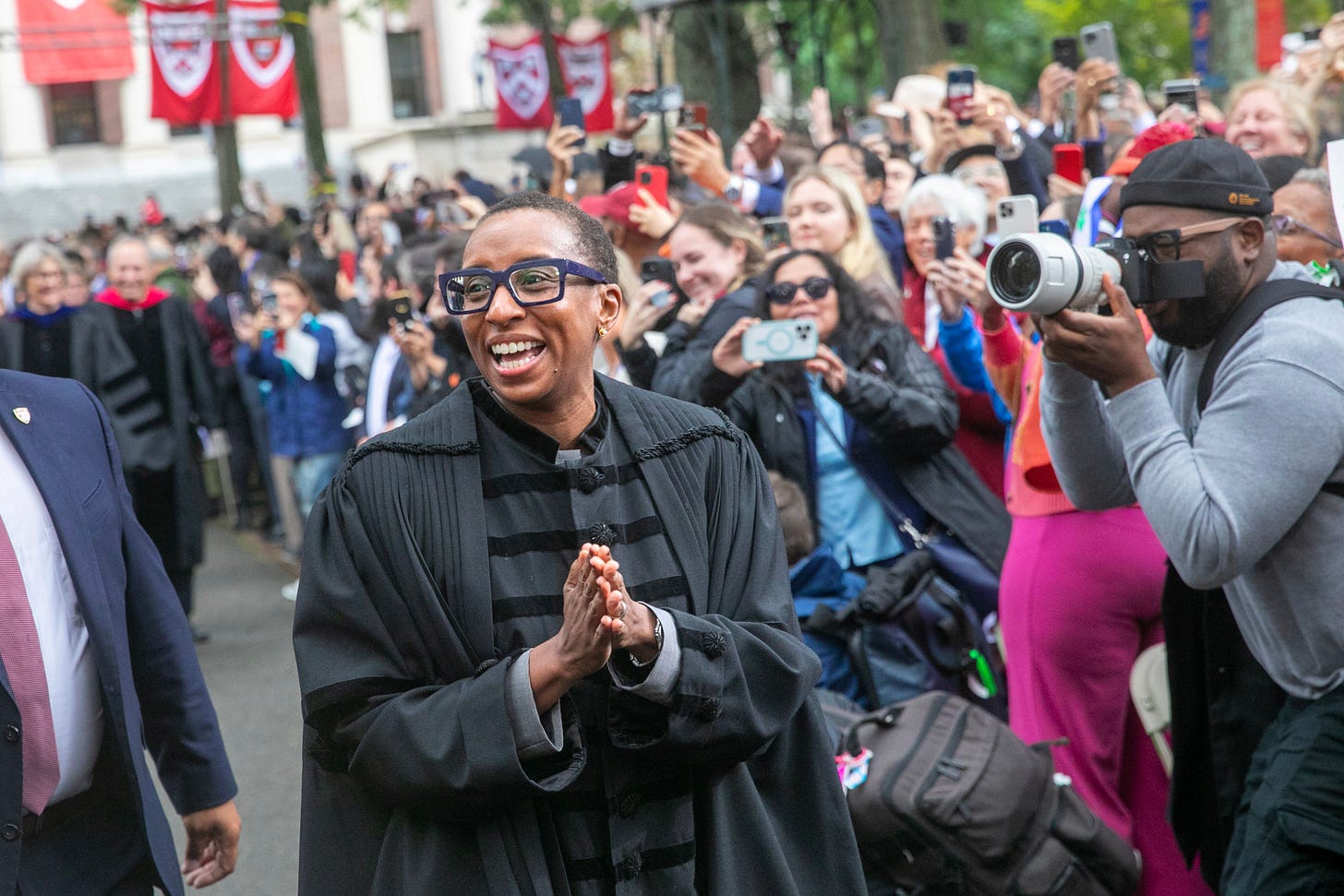Is Claudine Gay a Plagiarist?
The embattled Harvard president’s dissertation raises troubling questions.
Harvard president Claudine Gay has problems. Touted as the first black woman to run the nation’s most prestigious university, she assumed leadership with high expectations, but her tenure, which began this summer, has been mired in scandal. As dean and then president, Gay has been accused of bullying colleagues, suppressing free speech, overseeing a rac…





